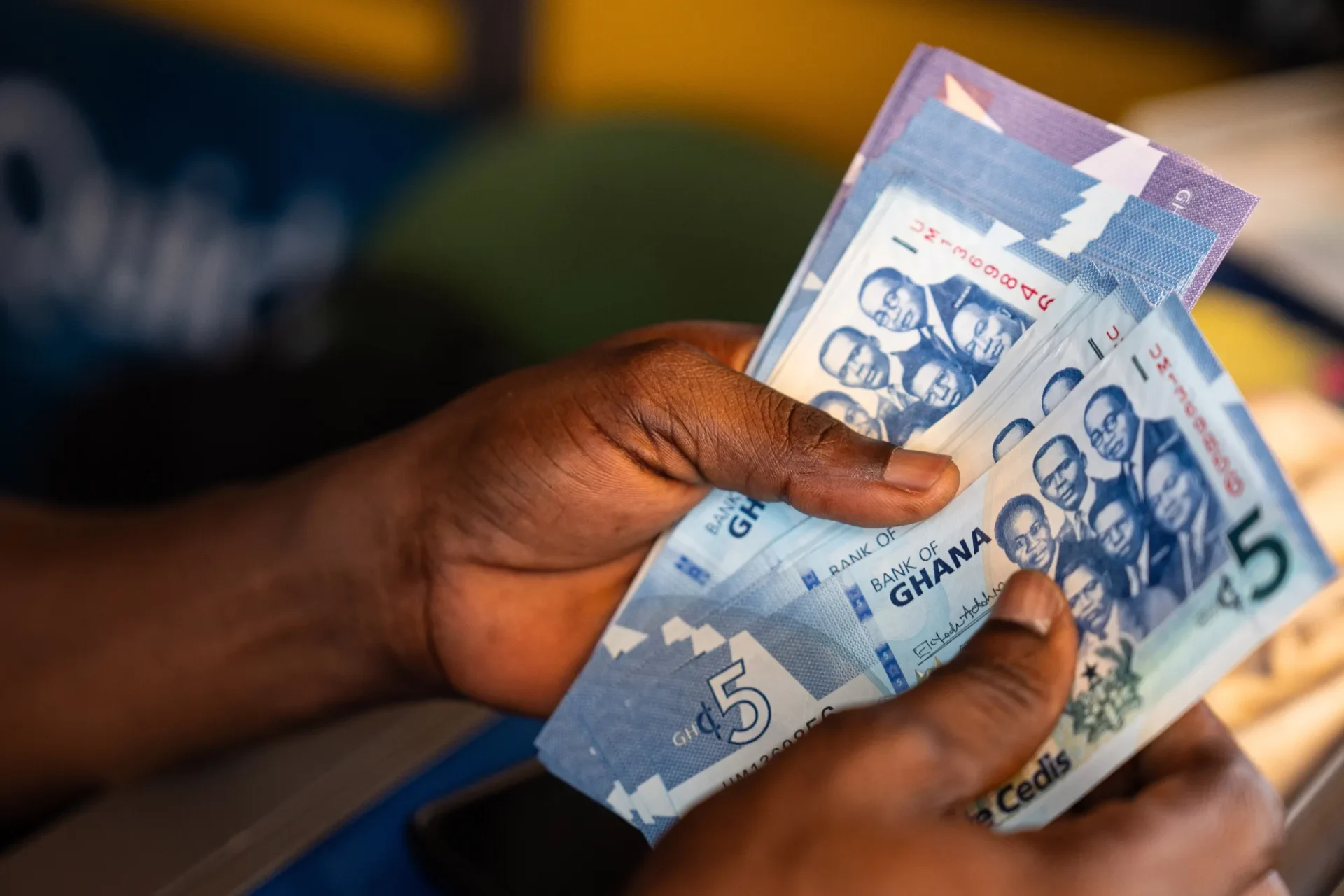Economist Professor William Baah-Boateng has warned the Bank of Ghana (BoG) that regular appreciation and depreciation of the cedi are not the best.
According to the economist, the Bank of Ghana (BoG) must prioritise the stability of the cedi to safeguard the economy.
He added that a stable exchange rate would help businesses plan effectively, noting that both appreciation and depreciation harm the economy.
Speaking on the Citi Breakfast Show on Monday, October 20, Prof. Baah-Boateng stated, “Stability is the best. Appreciating and depreciating are not the best. I’m concerned about the recent one.
We were at GHC12 and straight away we’re moving into the GHC10, when you calculate the percentage, it will go around 20% and it will hurt some aspect of the economy and benefit some aspect of the economy. But when you put them in totality, you will see that the economy will not benefit”.
He explained, “Now that it [cedi] has moved from GHC12 to GH10, expect that government revenue will take a hit. It will reduce the margin of export of cocoa. The appreciation will erode almost everything, and farmers will not benefit as they would”.
“I’m expecting that the Central Bank will not allow the cedi to go up and come down. When we got around GHC10.5, we shouldn’t have allowed it to depreciate to GHC12.5 and now come back to GHC10.5; that kind of difference is too big,” he said.
In related cedi news, Dr Johnson Asiama, the Governor of the Bank of Ghana, has revealed that the Central Bank occasionally intervene to stabilise the cedi for periods of exceptional market pressure.
The BoG Governor refuted claims that the Central Bank is overstepping its bounds in managing the foreign exchange market.
According to the BoG Governor, the Central Bank’s actions fall within a flexible exchange rate framework aimed only at curbing excessive volatility.
Speaking at the IMF–World Bank Governor Talk Series in Washington, D.C., Dr Asiama explained, “The framework that we have is a flexible exchange rate management framework. Essentially, what we do is smooth excessive volatilities. Yes, there were allegations about whether we were intervening in the market, but that was not exactly the case”
Dr Asiama highlighted that in the second and third quarters of 2025, Ghana undertook several “lumpy” foreign payments, including billions of U.S. dollars to Independent Power Producers (IPPs) and domestic bondholders, adding that at the same time, remittance inflows weakened, draining liquidity from the interbank foreign exchange market.
He added, “In the mix of that, the central bank had to step in. The interbank FX market had dried up, so the central bank had to provide that support”.
“We do not over-support the market at all. What we seek to do is limit volatility to ensure smooth dynamics in the market, and that is the framework we will maintain going forward,” he affirmed.
Also, Dr Johnson Asiama says Ghana’s economy has made a firm recovery after years of instability.
He described Ghana’s economy as being “back on track” following months of policy discipline.
Dr Asiama stated, “We came to meet a challenged economy in the sense that, remember, we had a domestic debt issue in 2022, fiscal policy was highly expansionary. It led to our exiting the international financial market. There was a resort to domestic financing.
“We remember all the sovereign downgrades we had to suffer. We came into office with a lot of liquidity, high inflation, [and an exchange rate that was depreciating widely,” he said.
“And I remember when we came in, there were talks about whether we should cancel the programme altogether, there were doubts as to whether we would be able to carry on the programme.
“But I am happy to say that eight months down the road, we have turned the corner. Ghana is back,” Dr Asiama declared.
The Governor added, “Growth has rebounded, inflation has cooled, and Ghana is now outperforming expectations under the IMF programme. Inflation, which stood at 23.5 per cent in January 2025, has since dropped to 9.4 per cent in September — the first single-digit rate in four years, beating the government’s 11.9 per cent target.”
Meanwhile, Dr Cassiel Ato Forson, Ghana’s Minister of Finance, has assured international investors that the country’s economic gains will be sustained.
Dr Forson, at the same event, declared that “Ghana is on track. We will sustain the gains.”

